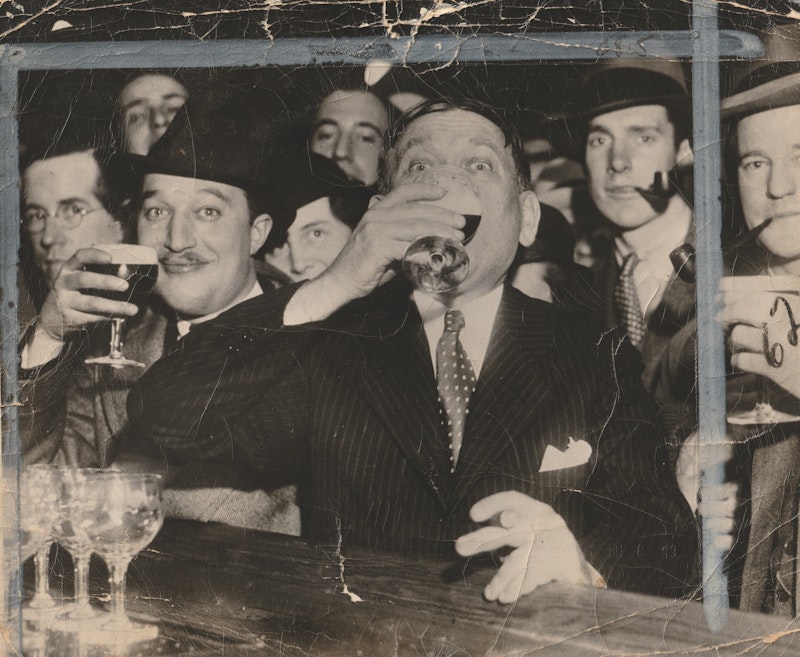My first recollection of notable quotations from H.L. Mencken came in 1966, as an 11-year-old visiting my brother Doug in Baltimore during his sophomore year at Johns Hopkins. He took me to an exotic (for me, coming from Long Island) seafood shack called Sterling’s in the neighborhood of Remington. As we sat at the counter and ate coddies and crabcakes, Doug told me that Mencken had referred to the Chesapeake Bay as an “immense protein factory.” Have to admit, that sailed over my head—I was more interested in the spicy coddies dripping with plain yellow mustard—but in a few years as I read a lot journalism, in books, magazines or newspapers, which meant Tom Wolfe, Joan Didion, Norman Mailer, Hunter S. Thompson, Ring Lardner, Red Smith, Russell Baker, A.J. Liebling, Jimmy Breslin and so on, I dabbled with Mencken as well, particularly his well-known writing on the Scopes Trial.
But it wasn’t until I also went to Hopkins, beginning in 1973, that I seriously delved into the Favorite Son’s work. One spring day in 1975 in my ladder-only-accessible loft that I’d commandeered at the News-Letter’s Gatehouse, when I was the features editor, I was reading a collection of Mencken columns compiled by Alistair Cooke and wrote down words that I wasn’t confident enough to use in a sentence. Several: “pernicious,” “rapscallion,” “Booboisie,” “verisimilitude,” “sluice,” “ubiquitous,” “supercilious,” “perspicacious,” “dipsomaniac,” “conundrum” and “lexicographer.” It’s what young people striving to improve their writing do, and at 19, though full of beans, there wasn’t any doubt I was a near-beginner at the craft.
Foolishly, I left the piece of paper on my desk, with the scrawled words, and the next day found a note on the sheet: “It looks like Mr. Cool is doing his homework. Guess he didn’t score too well on the verbal SAT.” I blushed, but was also pissed off, for I knew the source of the mean-spirited crack. It was from a rival of mine at the paper, a very intelligent straight-and-narrow fellow who was linguistically-gifted (which rendered his own stories a bit pretentious), a student of Greek, who’d cream me at a spelling bee or conversation about Thucydides. We’d been feuding at the time about the direction of The News-Letter—I wanted more Baltimore city coverage, he hewed to witty, but standard, denunciations of the student government and other on-campus issues—but I thought his poking fun was unkind. Probably over-sensitive on my part, and, as it happened, we made our peace months later and, in 1987, met up in Cairo where he was a foreign correspondent for a major daily newspaper, and was a genial tour guide (for a guy who didn’t speak the language) and we had a wonderful time.
The pic above is Mencken at Baltimore’s Hotel Rennert, hoisting a glass of 3.2 beer in a famous photo taken by The Baltimore Sun’s Frank Miller. I came into possession of this beauty in the summer of 1976, when I worked the four-midnight shift at The Sun’s library, fetching old clips and pictures for the very demanding post-Watergate hotshot reporters (I hung out with the sports staff, who were far better company, and we often had a nightcap at Burke’s) and one night I purloined the photo for my apartment wall. It’s not as if it was the only copy. A few years later, at my weekly City Paper, we ran a promotional full-page ad inside the paper, with the shot of Mencken, which read: “If H.L. Mencken Were Alive Today, He’d Write For City Paper.” It was a crackling advertisement, but someone at The Sun, then a fat family-owned newspaper that barely acknowledged of City Paper (although I’m certain some Sun staffers picked up the free paper for the personal ads), saw the ad, and we received a pro forma “cease and desist” notification and demanded the photo be returned. It wasn’t, and that was the end of that.
One of my favorite Mencken columns was a scathing 1925 obituary of William Jennings Bryan, published the day after God-fearing man’s demise (Mencken, an atheist, didn’t heed the “Too Soon” notion). He wrote: “What animated [Bryan] from end to end of his grotesque career was simply ambition—the ambition of a common man to get his hand upon the collar of his superiors, or, failing that, to get his thumb into their eyes. He was born with a roaring voice, and it had the trick of inflaming half-wits… If the fellow was sincere, then so was P.T. Barnum. He was a charlatan, a mountebank, a zany without sense or dignity. He preferred the company of rustic ignoramuses.”
Look at the clues to identify the year: Construction of the Golden Gate Bridge begins; The Lone Ranger debuts on radio; Newsweek begins publication; Pretty Boy Floyd kills four FBI agents; Duck Soup is released in the U.S.; Rick Dalton (played by Leonardo DiCaprio in Once Upon a Time in Hollywood) is born; the first drive-in movie theater is opened in New Jersey; Albert Einstein arrives in America from Germany; James Joyce’s Ulysses is ruled not obscene; Nina Simone is born and Fatty Arbuckle dies; “Stormy Weather” by Ethel Waters is top song; Jean-Marie Straub is born; and Nathanael West’s Miss Lonelyhearts is published.
—Follow Russ Smith on Twitter: @MUGGER2023

